When you've got that uncomfortable bloated feeling, you need something that works - quickly - to experience relief. This post will explain why your stomach bloats and how to reduce bloating, fast!
Ever get the feeling that your belly is distended, hard, and poking out like a basketball?
That’s bloating, my friends, and we all experience it. To some, it’s painful, while to others it’s embarrassing.
Often accompanied by gas, bloating is a nuisance. Your belly can be full for hours, making you look 5 pounds heavier and feeling like your clothes are just way too tight.
Those jeans fit perfectly a few days ago, so what gives?
There are several reasons for a puffed-out, hard stomach. What is the fastest way to debloat? Let's learn how to reduce bloating to feel your best every day!
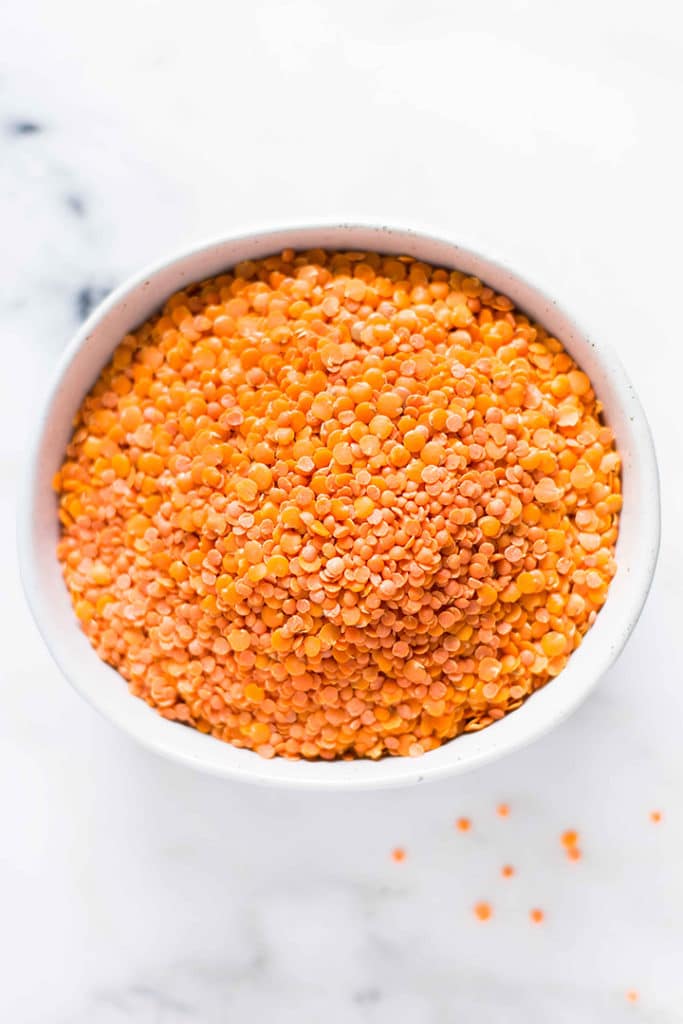
What causes bloating?
Everything from FODMAPs to overeating - many things can cause bloating. While you'd hope there would be one simple reason why your stomach goes from flat to full-out bloated, it's more complex.
Multiple factors can contribute:
- FODMAPs: These are foods classified as fermentable oligosaccharides, disaccharides, monosaccharides, and polyols. Examples are dairy foods (lactose intolerance can cause bloating), onions, garlic, asparagus, artichokes, and cashews.
*Lovers of legumes (chickpeas and lentils, for instance) may see bloating after they eat them. - SIBO: Small intestinal bacterial overgrowth is thought to occur when bad bacteria in the small intestine flourish and grow, eating food, and making extra gas. This cause of bloating is still under investigation.
- Symptoms of other conditions: In some cases, repeated bloating is a sign of an underlying condition. What are some of these health issues? Irritable bowel syndrome, celiac disease, gastroparesis (when the stomach empties slowly), and even cancer.
- Sugar alcohols and fructose: Foods with lots of sugar can add to bloat and are actually bad for you anyway. Consider limiting sugar!
- Hormonal changes: If you are having your period, you may experience bloating, especially in the first few days.
- Constipation: You may want to check with your doctor if you are consistently bloated from constipation. They can discuss natural and medicinal remedies.
You may still be asking, why is my stomach bloated?
Other reasons for stomach bloating can be...
- Eating too much sodium or starch
- Food intolerance to spicy or acidic foods
- Chewing gum and energy bars with ingredients like xylitol and mannitol
- Overeating (meal prep is a great way to control your portions)
- Drinking too many carbonated beverages
- Eating MSG-containing foods (make homemade takeout instead)
- Eating packaged foods that are overly processed
- Adding air to your belly by chewing gum and eating too quickly.
How do I get rid of bloating in 5 minutes?
For quick results, grab a water bottle and hit the streets for a mini-workout. Walking helps get your stomach contents moving by stimulating the digestive system. Trapped gas is also kicked to the curb, so get those shoes on and add extra steps to your day.
What relieves bloating instantly? Try yoga poses like the child's pose and the happy baby pose to help release trapped gas.
Drinking lots of water is a habit I strive for and you should too! Stay clear of carbonated water and drinks, though, as the bubbles sometimes add air to the stomach—and you don't want that.
You may think that eating more won't relieve the problem. But potassium rich foods may help you to debloat. Try sweet potato (I've got a TON of recipes here), avocado and asparagus. Try water filled foods like cucumber and watermelon too.
Remember that getting rid of bloat fast isn’t always super simple and it’s not always a quick fix. But if you are feeling full and tight in the abdominal area, the best thing to do is to get moving! The good thing is, exercising has benefits for every aspect of life. Bloat and all!
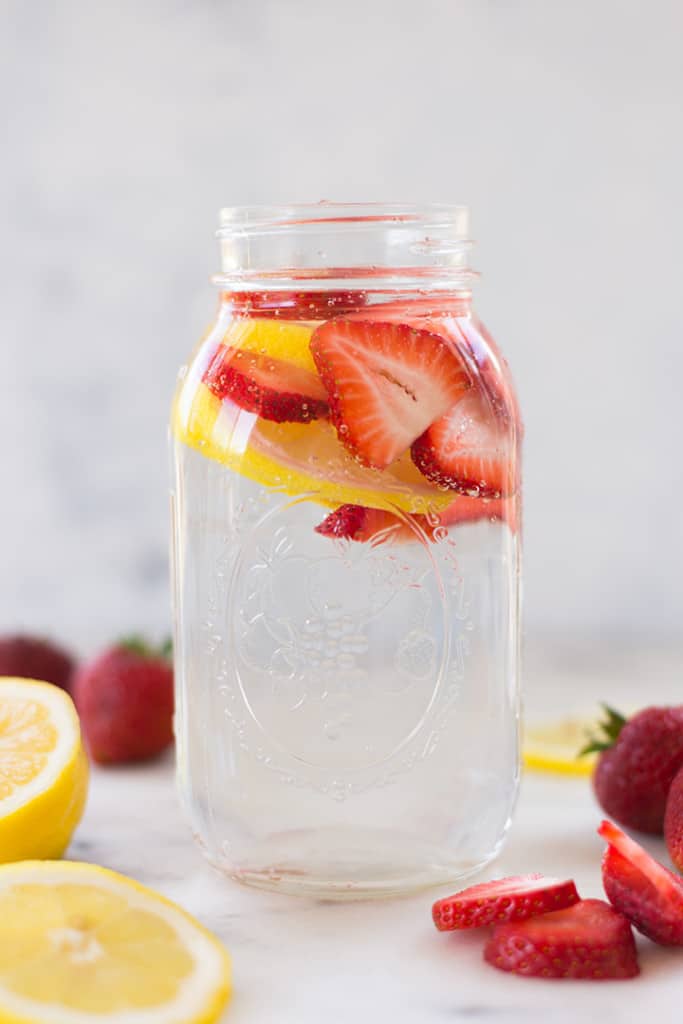
What is the fastest way to debloat?
Drinking water is probably the fastest way to debloat. This is because water is an essential part of a healthy digestive system.
Have you ever been dehydrated and as a result, felt sluggish and just plain blah? This can result from eating salty, sugary, overly processed foods. Upping your water intake can help 100%. This is because water helps to reduce the sodium level in your body, which is often a contributor to bloat.
Water is also crucial if you are planning to add fiber to your diet. Keeping the digestive system moving is reliant on good ole H2O. Foods I suggest that will keep you free of bloat are prunes, spinach, apples, olive oil, and probiotic foods like kefir and yogurt.
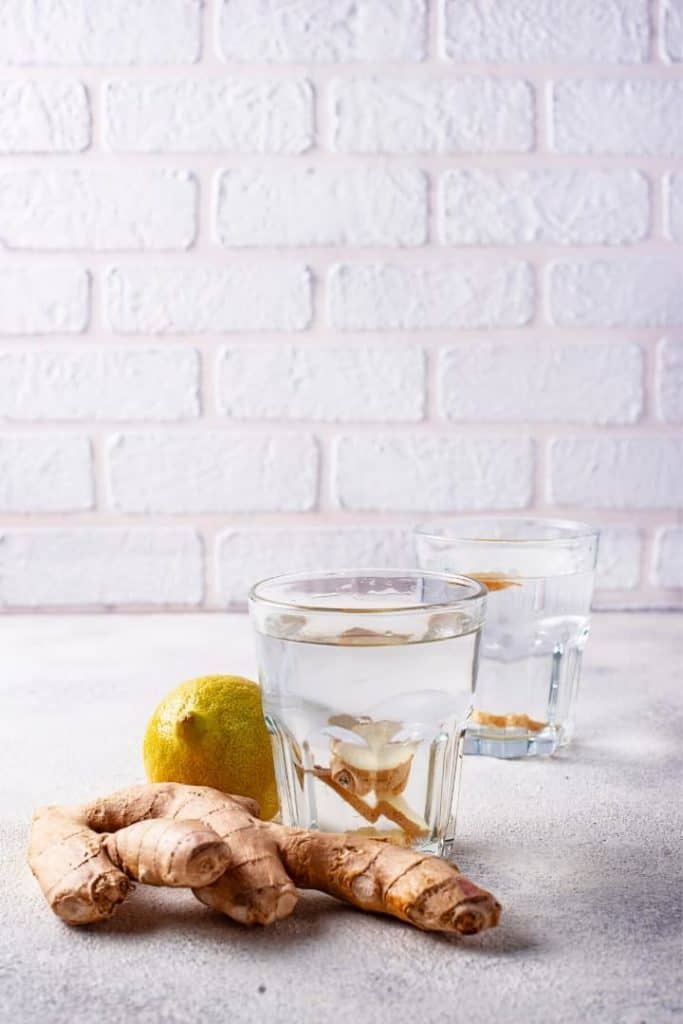
How can I debloat naturally?
There are 10 easy steps to reduce bloating fast and this includes at home or wherever you are. Whether you are traveling, at work, or just hanging around the house, keep these tips in mind. They work anywhere!
1. Make water your number one drink
How do you debloat fast in 1 hour? Flush toxins, decrease your histamine response and prevent bloating by drinking lots of water. Sure, green tea is good for you and coffee has benefits, too, but to reduce bloating fast, stick to water for the day. I can't say it enough! If you are really craving tea, make ginger tea. Hot water with lemon is also a great fix for getting rid of bloat.
*Ginger is good for your digestion and is an anti-inflammatory food.
2. Skip the beans today
If you are feeling bloated, skip legumes and beans for the day. Don’t avoid them all of the time because they are super-healthy. But if you are extra-bloated, take a break. Yes, chickpeas and beans are delicious and full of nutrients, but they can cause your stomach to bloat.
The oligosaccharides in soybeans, for instance, are ideal for boosting immunity but can cause gas to build up in the gastrointestinal tract.
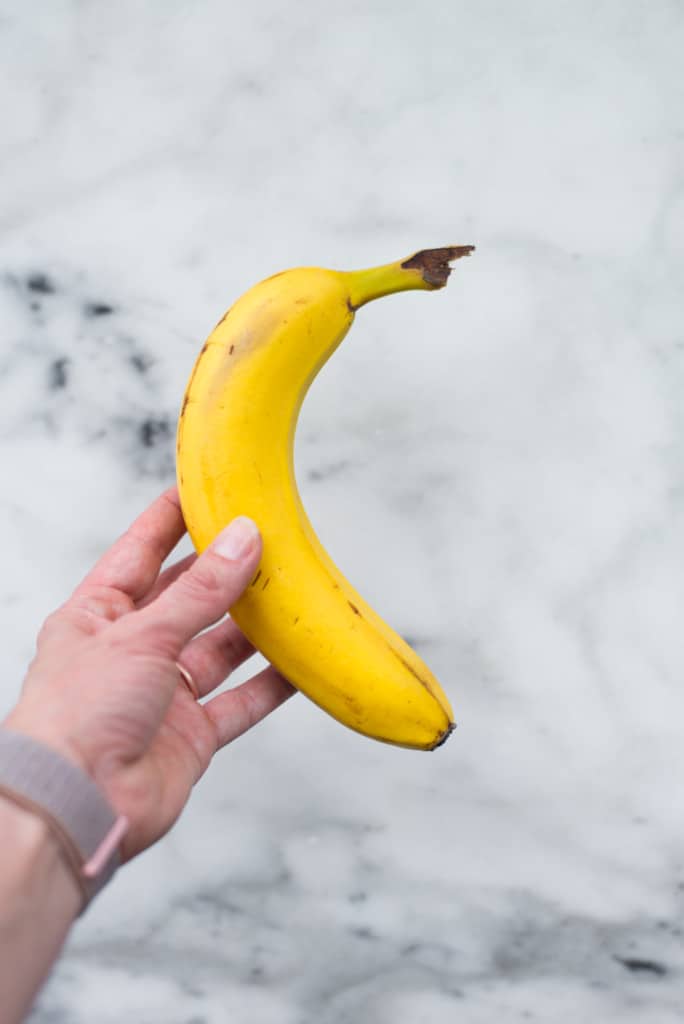
3. Eat a banana
This may seem surprising, but eating a banana helps you to reduce bloat! A controlled study showed that eating bananas regularly can help.
*Honeydew melon is another good choice!
4. Eat small portions
If your food intake is made up of big meals, you will feel full and bloated. Enjoy small meals throughout the day to allow your digestive system to do its work.
Healthy snacks (my faves here) and small portions will help a bloated belly.
5. Skip the sodium
Consuming a lot of sodium will only add to your bloated feeling. Sodium leads to water retention (and extra sodium in your bloodstream!).
Too much sodium every day can cause high blood pressure and affect organs like the kidneys and brain.
TIP: Use spices to flavor your dishes instead of salt.
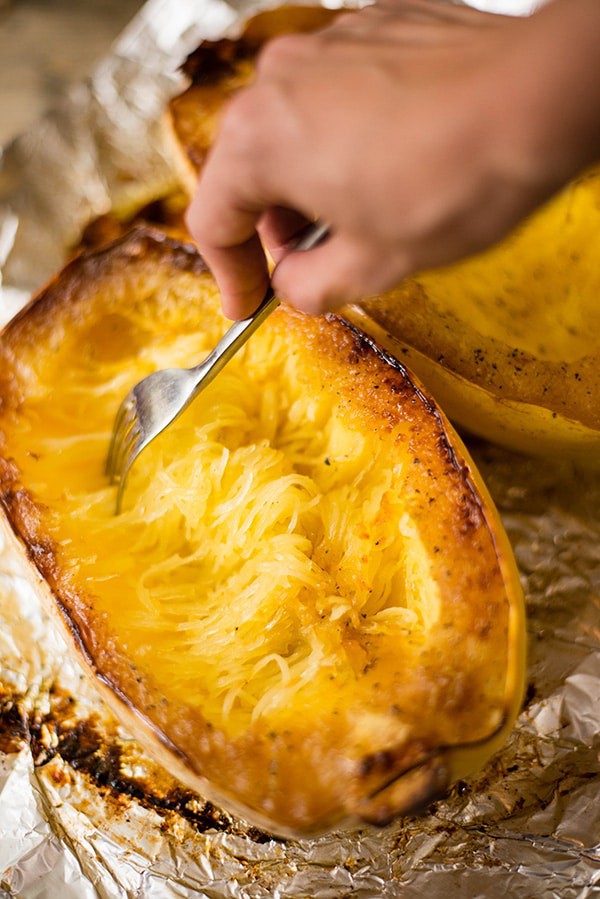
6. Choose veggies wisely
All veggies are good for you, but if you are having a day where you feel bloated, skip veggies like cauliflower, cabbage, and onions. These are on the FODMAP list (remember fermentable oligosaccharides, disaccharides, monosaccharides, and polyols).
Instead, go for fruits like avocados and veggies like squash, which like bananas, have potassium. Also, sauerkraut is good for you, as are other probiotic foods.
*Probiotic fermented foods like kefir help the gut and may reduce bloating.
7. Don’t have dinner late
Eating too late at night can make you feel bloated. And no one likes to go to bed on a full stomach. Not to mention the strain on your digestive system! And it can lead to weight gain.
That’s one thing I like about Intermittent Fasting—with my 4 to 5-hour window of eating from 11:30 am to 4 pm ‘ish, there’s no late-night eating for me. Learn all about Intermittent Fasting here.
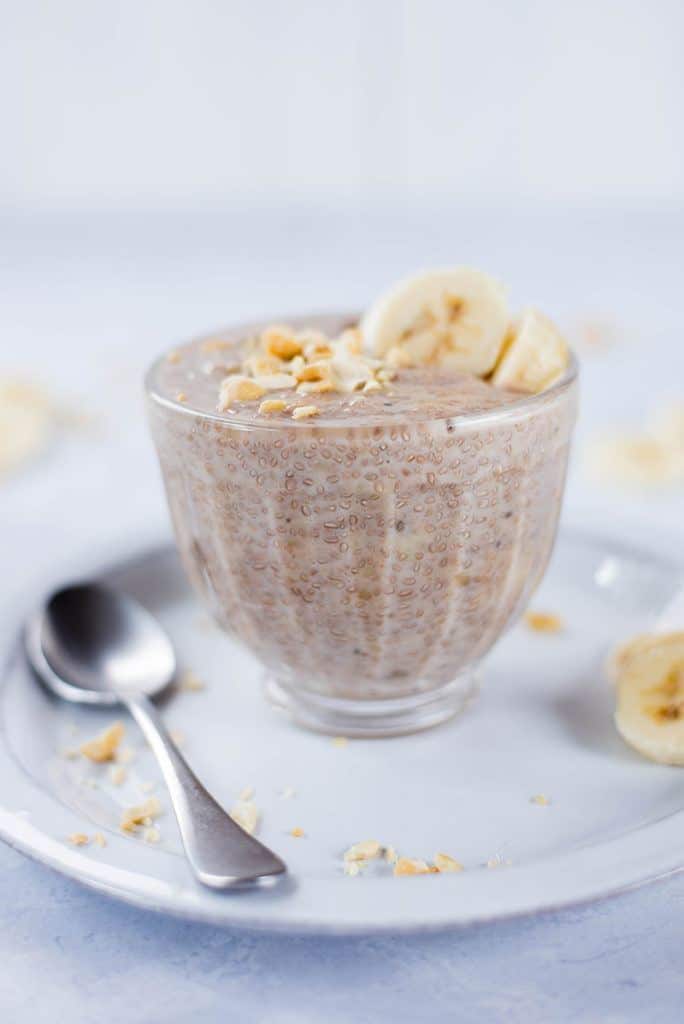
8. Fill up on fiber
An easy way to reduce bloating fast is to eat healthy foods with lots of fiber. You might recognize a key theme here; keeping the digestive system moving along is key to not feeling bloated.
Look to yummy foods that contain flax seeds and chia seeds. Choose foods like sweet potatoes and quinoa. Pop over to my post on 21 foods high in fiber for ideas.
9. Get better sleep
Make it a plan to improve your sleep habits starting tonight! This guide to better sleep can help you do just that. Aim for 7-9 hours a night to keep healthy.
Studies show that even one night of poor sleep can cause toxins to build up and even has effects on cognition. Inflammation (and therefore, bloating) can result when your sleep is disturbed.
10. Make efforts to reduce stress
I know, this is easier said than done, but take it one step at a time. Meditation, exercise, and activities where you are aware of your breathing - like yoga - can reduce stress.
Did you know that you can reduce stress in just 10 days by doing yoga? And remember, the child's pose and the happy baby pose are extra helpful for getting rid of gas. Strength training is a great stress-reducer, too.
*I’ve written a post on the best time to workout take a look!
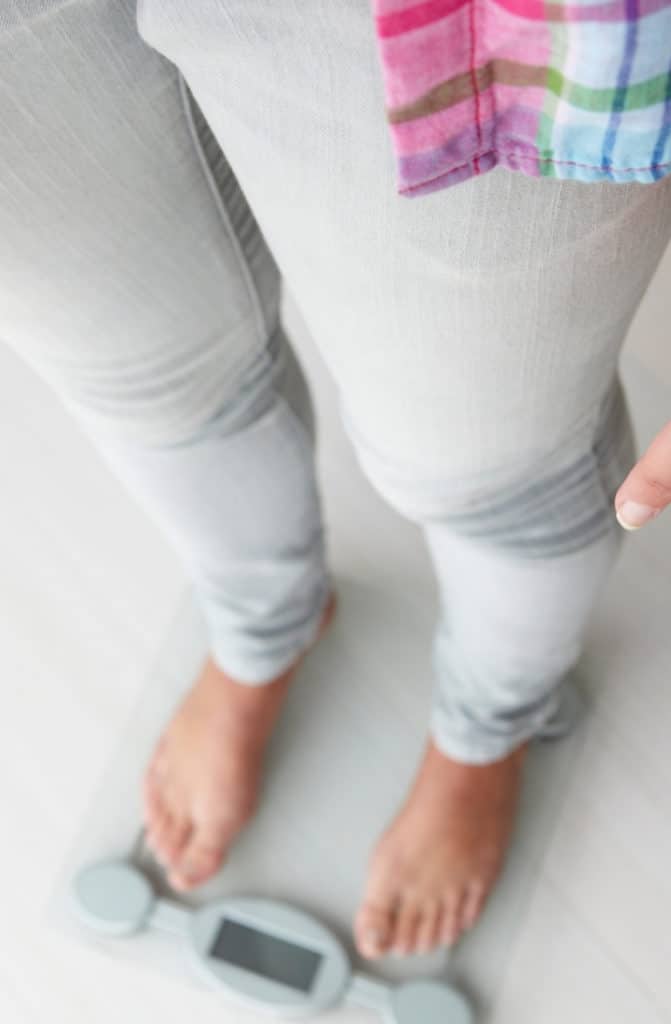
How can I get more fiber fast?
Wanting to know how to get more fiber fast is a good question. Why? As I've said, eating more fiber is a long term solution to getting rid of bloat. Fiber provides carbohydrates from plant sources - just remember that fiber is best taken in whole fruits and vegetables with seeds and the skins on.
I've mentioned sweet potatoes and quinoa, chia seeds and flax. Aim for 25grams of fiber for females and 38grams for males.
Also try oatmeal, brown rice, nuts, blueberries, kale and pears. Eat slowly to avoid gas buildup in the intestines. Savor your food and treat your gut kindly by chewing your fibrous food to not cause discomfort.
Does bloating cause weight gain and a big stomach?
Bloating can cause weight gain, but typically it’s going to be a pound or two at most. Let’s look at this further. If belly bloating causes you to gain weight, it will be because you’ve eaten too much, and your digestive system has some work to do.
Of course, if you consistently overeat, then you will gain weight. Looking for weight loss hacks? Watch my video for the best tips ever!
If your bloat is due to something like PMS or too much sodium causing you to feel like you’ve added a few pounds, it’s highly likely after a few hours the weight will be gone.
How do I get rid of bloat overnight?
Ask yourself, am I overeating? Bingeing on foods, eating too much junk, and passing up nutritious salads that'll up your fiber intake can bring on the bloat.
You may feel bloated because you are eating all of the wrong foods. If you are struggling, relook at the 10 simple tips I’ve outlined above and try them out. You can also try these tips which can get rid of bloating overnight.
How do I get a flat stomach overnight?
- Try abdominal massage: Does abdominal massage relieve constipation? Yes, it can and that can help bloat! Take a low perfume cream and gently massage your belly. You may find that this stimulates the colon to get into action, thus relieving your problems.
- Take a warm bath: A warm bath serves a lot of purposes. Not only can it help you debloat fast but it can also reduce stress levels by giving you the all important me-time that's essential to feeling good. Try adding epsom salts for an extra fizzy bath!
- Eat regularly: Don't graze all day. Instead, eat 3 healthy meals a day with snacks that are meant to help with bloating.
- Keep a food diary: If you write down what you eat, the visual often helps you to eat sensibly and prevents too much snacking on foods like sugary, overprocessed stuff that causes bloat.
But seriously, as I have mentioned before, go for a walk. Daily. It is hands down one of the best ways to get rid of bloat.
Can supplements help with bloating?
If you've read my post on supplements vs whole foods, you'll know I am always a fan of food first. But sometimes, like in the case of discomfort, gut pain, and bloating, supplements may be beneficial.
Talk to your doctor who may suggest things like gas relief capsules and peppermint oil capsules, which are thought to help your digestive system to perform as it should. A happy gi tract is one that's functioning well!
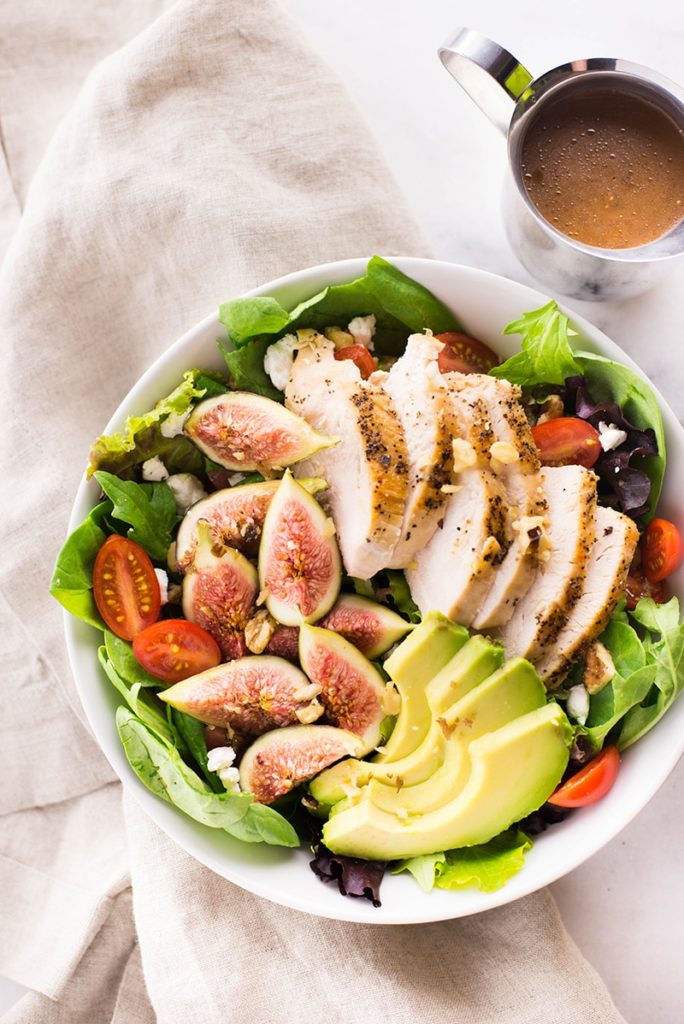
What does inflammation have to do with bloating?
Inflammation has a LOT to do with bloating. So much, in fact, that I’ve dedicated a video to the topic, which you can watch here.
I’ve also written several posts about inflammation because it really can wreak havoc on your health.
- Take a look at 18 Top Anti-Inflammatory Foods to see some of the foods best for helping to reduce inflammation and bloat.
- On the other end of the coin, you’ll find 10 Foods that Cause Inflammation. Find out what to avoid and why.
- If you need help with all of this, start off on the right foot with my 5-Day Anti-Inflammatory Diet Meal Plan.
I know you'll find this information helpful! If you are struggling with the discomforts of bloating, relook at the 10 simple tips I’ve outlined above and try them out. Even bit by bit is fine.
The more steps you take, the better you’ll feel. Guaranteed!
This post contains affiliate links to products I use regularly and highly recommend.

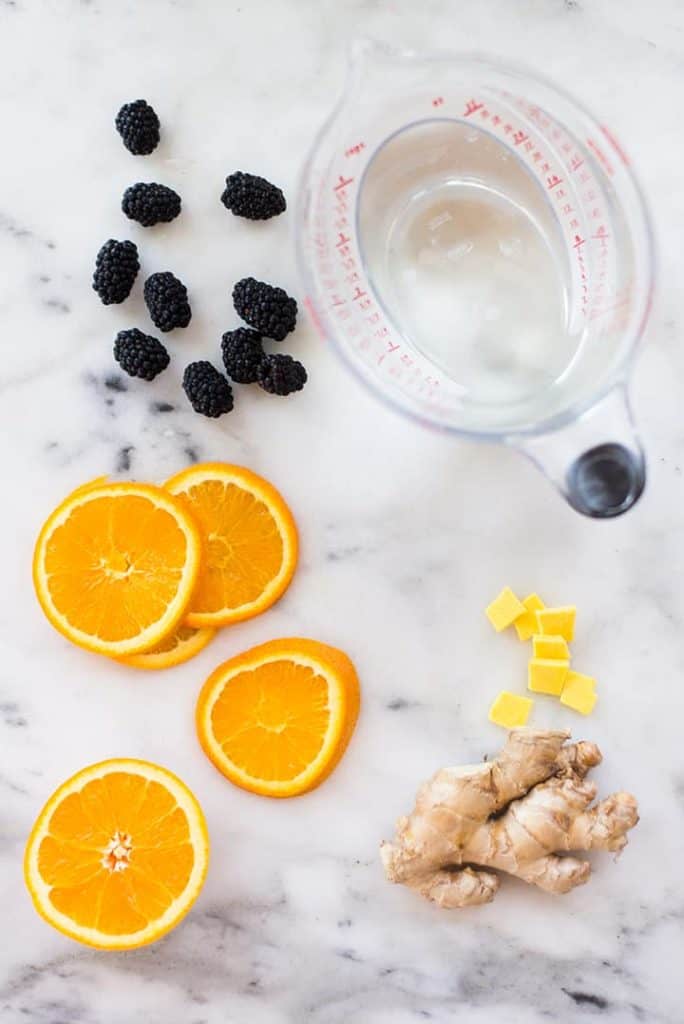
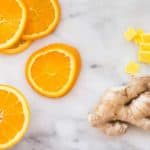
Deborah
So glad I found this page -it’s very helpful for things I need to b incorporating.